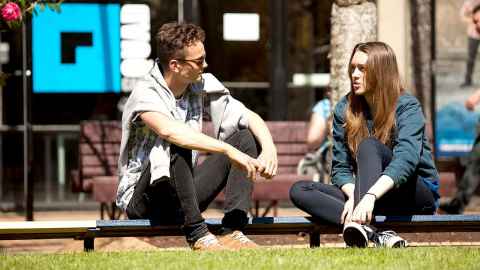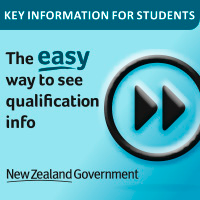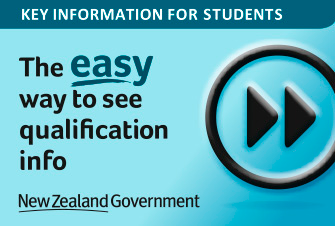Programme overview
The BA gives you the freedom to follow your interests and study the subjects you love. You can choose from a wide range of study possibilities that cater for many different interests or career goals.
Your BA study can develop the knowledge and skills you need to future-proof your career. Capabilities such as communication and creative thinking will keep your options open for different opportunities in the fast-changing world of work. You can further extend your skill set for future careers through one or two of our optional, theme-based modules.
Your double major will give your degree a strong focus and deepen your knowledge and skills. You have the flexibility to explore different subjects before you choose your two majors.
You can also study two different fields by combining a BA with another degree as
part of a conjoint programme.

Conjoint programmes let you pursue two undergraduate bachelors degrees at the same time.
Learn more about conjointsProgramme structure
The BA is made up of 24 courses across 3 years of full-time study (360 points/24 courses).
You are required to select two BA subjects as your two majors.
Please check all the available courses for you to study under your chosen majors.
The broad structure of the programme is:
- Eight courses in your chosen first major (120 points)
- Eight courses in your chosen second major (120 points)
- One General Education courses (15 points)
- One Waipapa Taumata Rau core course (15 points)
- Six elective courses (90 points)
- Up to two (30 points) of these can be from outside of the BA schedule from other faculties such as Science.
You can take one or two optional modules instead of elective courses. A module is a group of three courses (45 points) focusing on a specific skill or knowledge to benefit or inform future careers.
See the Subjects tab to learn more about the areas you’re interested in, and see what courses are on offer to help you plan your enrolment for the year.
Sample degree planners can be downloaded here and used to plan your study.
See the Student Hub for guidance on degree planning or any questions you may have.
You can access a range of information about The University of Auckland online at AskAuckland.
Most students need to take one General Education course.
Students should also be aware of the University’s Academic English Language Requirement.
Sample programme structure
Double major
Year one 120 points
-
- Name:
- Stage I course
- Type:
- First major
- Points:
- 15 pts
-
- Name:
- Stage I course
- Type:
- First major
- Points:
- 15 pts
-
- Name:
- Stage I course
- Type:
- Second major
- Points:
- 15 pts
-
- Name:
- Stage I course
- Type:
- Second major
- Points:
- 15 pts
-
- Name:
- Stage I course
- Type:
- Elective course
- Points:
- 15 pts
-
- Name:
- Stage I course
- Type:
- Elective course
- Points:
- 15 pts
-
- Name:
- Stage I course
- Type:
- Optional module
- Points:
- 15 pts
-
- Name:
- Waipapa Taumata Rau
- Type:
- Core course
- Points:
- 15 pts
Year two 120 points
-
- Name:
- Stage II course
- Type:
- First major
- Points:
- 15 pts
-
- Name:
- Stage II course
- Type:
- First major
- Points:
- 15 pts
-
- Name:
- Stage II course
- Type:
- First major
- Points:
- 15 pts
-
- Name:
- Stage II course
- Type:
- Second major
- Points:
- 15 pts
-
- Name:
- Stage II course
- Type:
- Second major
- Points:
- 15 pts
-
- Name:
- Stage II course
- Type:
- Second major
- Points:
- 15 pts
-
- Name:
- Stage II course
- Type:
- Optional module
- Points:
- 15 pts
-
- Name:
- Stage I course
- Type:
- General Education course
- Points:
- 15 pts
Year three 120 points
-
- Name:
- Stage III course
- Type:
- First major
- Points:
- 15 pts
-
- Name:
- Stage III course
- Type:
- First major
- Points:
- 15 pts
-
- Name:
- Stage III course
- Type:
- First major
- Points:
- 15 pts
-
- Name:
- Stage III course
- Type:
- Second major
- Points:
- 15 pts
-
- Name:
- Stage III course
- Type:
- Second major
- Points:
- 15 pts
-
- Name:
- Stage III course
- Type:
- Second major
- Points:
- 15 pts
-
- Name:
- Stage III course
- Type:
- Optional module
- Points:
- 15 pts
-
- Name:
- Stage III course
- Type:
- Elective course
- Points:
- 15 pts
Majors available in this programme
- Academic English Studies and Linguistics
- Anthropology
- Art History
- Asian Studies
- Chinese
- Classical Studies and Ancient History
- Communication (Major)
- Criminology
- Drama
- Economics
- Education
- Employment Relations and Organisation Studies
- English
- European Studies
- French
- Gender Studies
- Geography
- German
- History
- Japanese
- Korean
- Latin
- Linguistics
- Logic and Computation
- Mathematics
- Media and Screen Studies
- Music
- Māori Studies
- Pacific Studies
- Philosophy
- Politics and International Relations
- Psychology
- Sociology
- Spanish
- Statistics
- TESOL
- Theological and Religious Studies
Modules
A module is an optional grouping of three courses on a particular theme designed to complement the skills you will develop through your Bachelor of Arts. Modules available:
- Arts Scholars
- Citizenship of Aotearoa New Zealand
- Coding and Logic
- Community Service in Youth Development
- Critical Thinking
- Innovation and Entrepreneurship
- Language Teaching and Learning
- Māori, Pacific and Indigenous Knowledges
- Modern languages
- Public Policy
- Science in Society
- Spatial Information and Analysis
- Studies in Urban Wellbeing
- Sustainability
- Teaching in Society
- Visual Literacy: Researching Images
Additional subjects
You can also take elective courses in:
2025 entry requirements
My highest qualification is from:
Secondary school qualifications
If you're joining us from secondary school, here's what you need to enter the programme.
You are guaranteed entry to this programme if you meet these requirements.
- First, you must meet the University Entrance (UE) standard.
- You must also meet the rank score for this programme. Not sure about your rank score? Use our rank score calculator.
- You may need to have studied certain subjects or achieved credits in particular subjects.
- Some programmes have additional requirements, such as an interview, portfolio or references.
Guaranteed rank score, subject and other requirements
If your rank score is slightly lower than the guaranteed score, we encourage you to still apply. We will consider your application if places are available. If you don’t meet the requirements, you may be able to apply under our Undergraduate Targeted Admission Schemes.
-
QualificationNCEA National Certificate of Educational AchievementScore required150
-
QualificationCIE Cambridge International ExaminationsScore required150
-
QualificationIB International BaccalaureateScore required26
Read more about entry requirements for New Zealand secondary school applicants.
Tertiary qualifications
If you've studied at a tertiary institution, here's what you need to enter the programme.
You can transfer from another tertiary institution, or another University of Auckland qualification, if you meet these requirements.
Guaranteed grade requirements
These are the grades required for guaranteed entry to this programme. If your grades are slightly lower, we encourage you to still apply. We will consider your application if places are available.
-
Grade requiredGPA Grade Point Average 2.4
-
Grade requiredGPE Grade Point Equivalent 2.4
Further requirements
You must have completed one semester of successful bachelor degree study from a New Zealand tertiary institution, or one year of successful study as part of an acceptable sub-degree qualification from a New Zealand tertiary institution.
Transfer of Credit - You can apply for transfer of credit for tertiary courses completed elsewhere as part of your Application for Admission. For more information, see External transfer of credit.
If you have completed study at another New Zealand University, get an estimate of the transfer credit you may be eligible for, using our Transfer Credit Calculator.
Other pathways to study
You could be eligible for another programme, or check out these alternative pathways:
- See if you meet the criteria for the Undergraduate Targeted Admission Scheme (UTAS).
- Bridge your educational gap with a preparation and foundation programme.
- If you are 20 on or before the first day of semester, have no formal University Entrance (UE) qualification, and are a New Zealand or Australian citizen or permanent resident you can apply for special admission.
- If you are under 20, have no formal University Entrance (UE) qualification, and are a New Zealand or Australian citizen or permanent resident you can apply for discretionary entrance.
- If you can demonstrate outstanding academic achievement and maturity, we offer admission to applicants under 16.
- If your rank score is below our guaranteed admission level and you're not eligible for the Targeted Admission Scheme, you could qualify for Conditional Admission.
My highest qualification is from this country or region:
Secondary school qualifications
If you're joining us from secondary school, here's what you need to enter the programme.
You need to have one of the following:
- International Baccalaureate Diploma with a minimum total score of 24.
- General Certificate of Education (GCE) Advanced Level. You must have completed a minimum of three A-Level subjects.
- Cambridge International Examinations (CIE). You must have completed a minimum of three A-level subjects.
GCE ‘A’ Level requirements apply to ‘A’ Level qualifications examined by bodies such as AQA, OCR, Edexcel, WJEC, CCEA and Pearson Education Limited taken outside of New Zealand.
Minimum grade, subject and other requirements
Minimum requirements listed here are the likely grades required and do not guarantee entry. We assess each application individually and applicants may require a higher grade to be offered a place. Your CIE/GCE A level score is calculated on the best three academic subjects and General Studies cannot be included.
-
QualificationIB International Baccalaureate DiplomaScore required26QualificationIELTS Academic International English Language Testing SystemScore required6.0
No bands less than 5.5.
-
QualificationGCE A Level/CIE General Certificate of Education Advanced LevelScore requiredCCCQualificationIELTS Academic International English Language Testing SystemScore required6.0
No bands less than 5.5.
Tertiary qualifications
If you've studied at a tertiary institution, here's what you need to enter the programme.
You can transfer from another tertiary institution if you meet these requirements.
You need to have the following:
One year successful bachelor-degree level study at a recognised university (or similar institution) overseas.
Guaranteed grade requirements
These are the grades required for guaranteed entry to this programme. If your grades are slightly lower, we encourage you to still apply. We will consider your application if places are available.
-
Grade requiredGPE Grade Point Equivalent 2.4
-
QualificationIELTS Academic International English Language Testing SystemScore required6.0
No bands less than 5.5.
Other pathways to study
You could be eligible for another programme, or check out these alternative pathways:
- Bridge your educational gap with a preparation and foundation programme.
- If you have an offer of place from us that is conditional on meeting English language requirements, you may be considered for English Pathway courses from the University of Auckland English Language Academy (ELA)
- If you are 20 on or before the first day of semester, have no formal University Entrance (UE) qualification, and are a New Zealand or Australian citizen or permanent resident you can apply for special admission.
How much does a Bachelor of Arts cost per year?
2025 fees
- Domestic students
- NZ$7,185.60 – $8,288.40*
- International students
- NZ$38,310 – $45,841*
Fees are set in advance of each calendar year and will be updated on this website. Fees are inclusive of 15% GST, but do not include the Student Services Fee, course books, travel and health insurance, or living costs. Amounts shown are indicative only. In addition to the tuition fees, there is a Student Services Fee of $9.24 per point, estimated at $1,108.80 for full-time study (120 points). Fees will be confirmed upon completion of enrolment into courses.
*Please note: amounts shown are indicative and estimates only.
Find out about financial support information
Scholarships and awards
Find out about the scholarships you may be eligible for.
Student loans and allowances
Are you a New Zealand citizen or resident? You could be eligible for a student loan or allowance.
Cost of living
Get an idea of how much accommodation and general living in Auckland will cost.
Key dates
Please note: We will consider late applications if places are still available. International students should start the application process as early as possible to allow sufficient time to apply for a visa.
Application closing dates
- Summer School 2025
- 1 December 2024
- Semester One 2025
- 8 December 2024
- Semester Two 2025
- 4 July 2025
Start dates
Here are the start dates for the programme.
| Summer School | Starts – 6 January |
|---|---|
| Ends – 19 February | |
| Semester One | Starts – 3 March |
| Ends – 30 June | |
| Semester Two | Starts – 21 July |
| Ends – 17 November |
| Summer School | Starts – 5 January |
|---|---|
| Ends – 18 February | |
| Semester One | Starts – 2 March |
| Ends – 29 June | |
| Semester Two | Starts – 20 July |
| Ends – 16 November |
Other important dates
See important dates for the academic year, including orientation, enrolment, study breaks, exams, and graduation.
How to apply
Applying for an undergraduate programme? Check out our step-by-step guide.
Plan Your Degree
The Bachelor of Arts consists of 24 courses but offers students the flexibility to explore multiple areas of study. The following is a guide on how students can complete a BA. Please see Student Hubs for personalised guidance.
Degree planner
BA degree planners can be downloaded here and used to plan your study.
Year One
A typical first year for a BA student looks like:
- 2 x Stage I courses in your first major
- 2 x Stage I courses in your second major
- 2 x Stage I Arts electives
- 1 x General Education course
- 1 x Waipapa Taumata Rau core course
By structuring your first year this way, you remain on track to complete second-year courses in your chosen majors. This approach allows students to explore their interests and discover their strengths. The BA allows students to change their majors throughout their programme, so students are encouraged to use their first year to explore their interests.
See the Subjects tab to learn more about the areas you’re interested in and see what courses can help you plan your enrolment for the year.
Year Two
A typical second year for a BA student looks like:
- 3 x Stage II courses in your first major
- 3 x Stage II courses in your second major
- 2 x Stage I Arts electives
Year Three
A typical third year for a BA student looks like:
- 3 x Stage III courses in your first major
- 3 x Stage III courses in your second major
- 1 x General Education course
- 1 x Stage I Arts elective
General Education
Most students need to take a General Education course. This can be taken in any semester of your study. General Education papers are designed to allow you to study a broad range of subjects. You cannot take courses in a subject in which you have previously passed a course.
*If you are a new student studying an undergraduate degree with us in 2025 you will most likely need to complete one General Education course and one Waipapa Taumata Rau course.
Modules
You can take one or two optional modules instead of elective courses. A module is a group of three courses (45 points) focusing on a specific skill or knowledge to benefit or inform future careers.
Where could this programme take you?
Your BA study will help you develop strong capabilities for many careers: communication skills; creative and critical thinking; the ability to research, analyse and evaluate information; problem-solving; adaptability; and an awareness of different perspectives. These enduring capabilities are increasingly valued by employers. You'll be well-positioned to pursue new career opportunities as the world of work changes.
Jobs related to this programme
- Government Policy Lead
- Journalist and Social Media Adviser
- Communications Specialist
- Museum Curator
- Digital Content Manager
- Charity Director

Studying Criminology allowed Natasha to bring about real-world change in her role.
Read moreStudent career planning service
Once you become a student at the University, you can get help with planning and developing your career from Career Development and Employability Services.
Experience the University

The Bachelor of Arts Journey
Discover where a Bachelor of Arts can take you.
Do you need help?
Can’t find the answer in AskAuckland?
Need to speak to someone?
You can phone us directly.
- Auckland
- 923 5025
- Outside Auckland
- 0800 61 62 63
- International
- +64 9 373 7513


